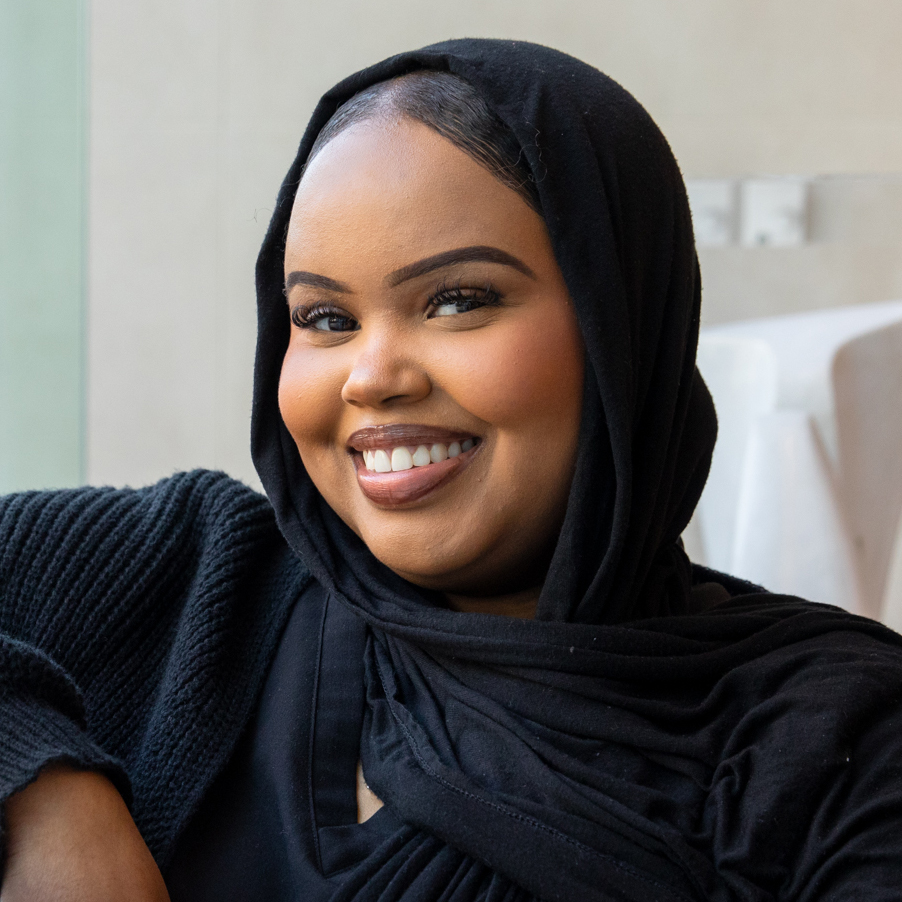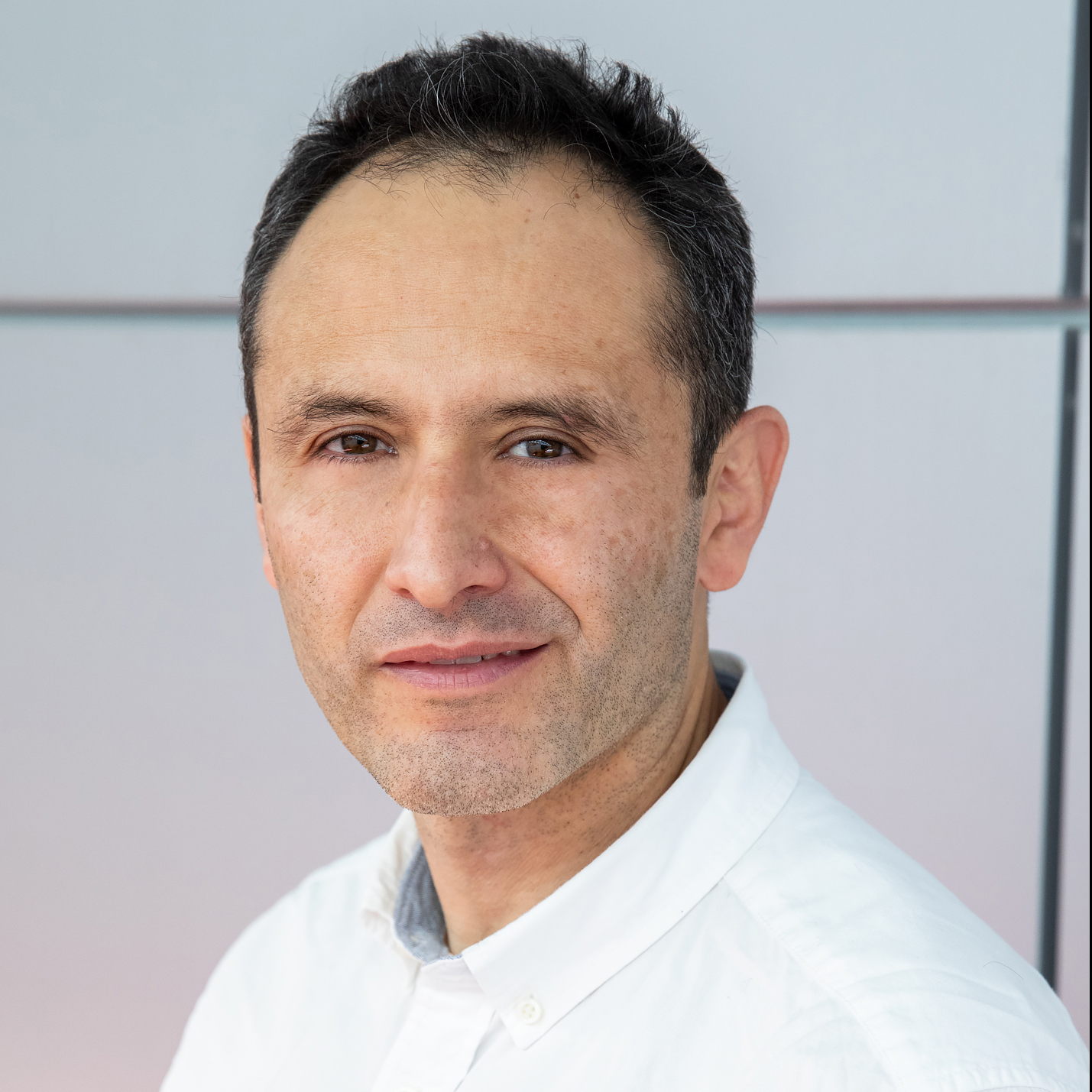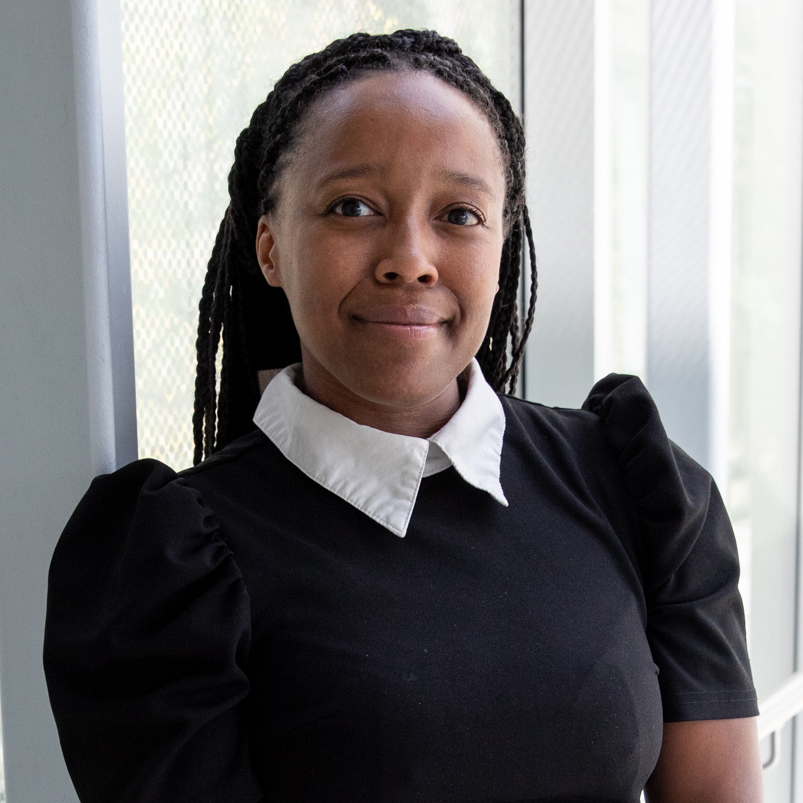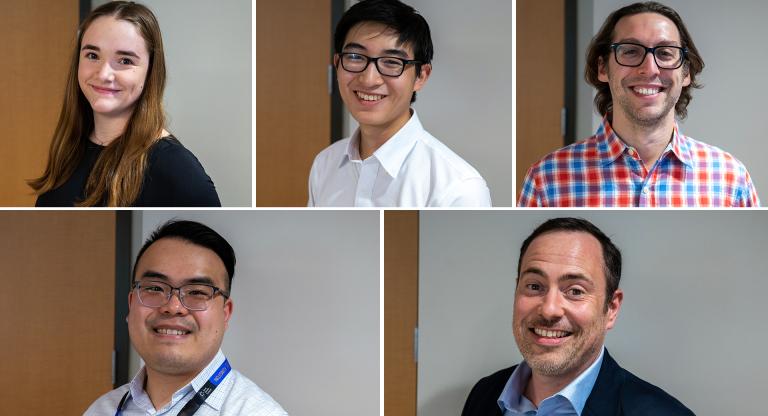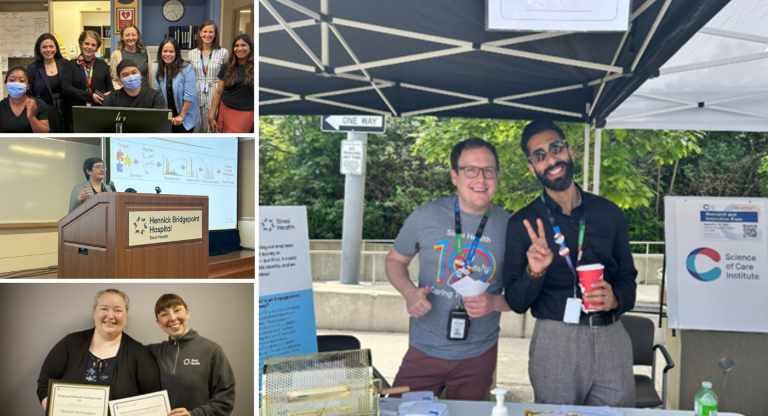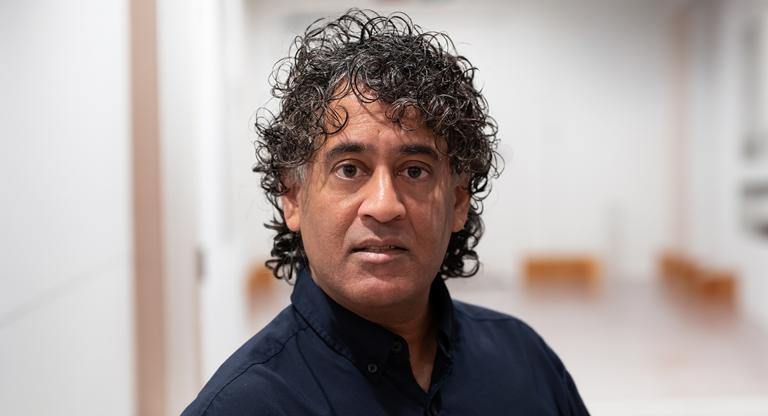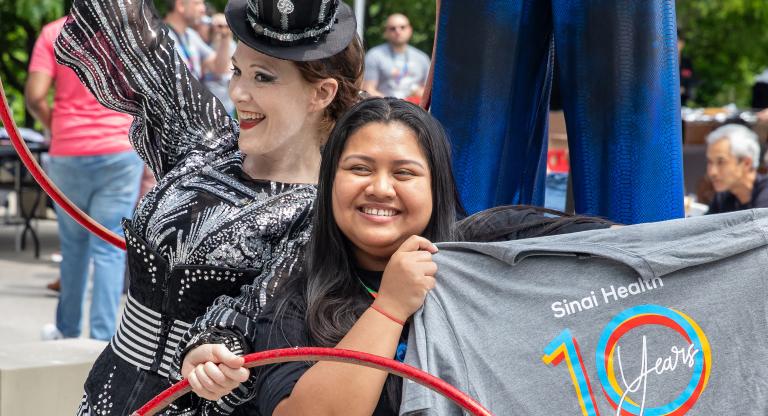Improving the delivery of care for Indigenous patients and families

Health-care providers play a crucial role in addressing the health and well-being of Indigenous Peoples, and contributing to the process of reconciliation.
Sinai Health is committed to actively engaging in this work, and improving cultural safety and the delivery of care for Indigenous patients and their families.
That is why Sinai Health invited their people to participate in an eight-week San’yas Anti-racism Indigenous Cultural Safety Training program focused on strengthening knowledge, awareness and skills for providing service to Indigenous Peoples and communities. We had a chance to hear from participants Amal Arab, Mike Ariza and Kerrisha (Sasha) Smith to learn about their experiences.
September 30 marks the National Day for Truth and Reconciliation in honour of Survivors of residential schools and the children who tragically never returned home. It is a reminder of the historical injustices faced by Indigenous Peoples, its lasting impact on communities, and the ongoing need for reconciliation. But as Sasha puts it, everyone has a role to play in restoring relations, “Healing intergenerational trauma is the responsibility of all of us.”









